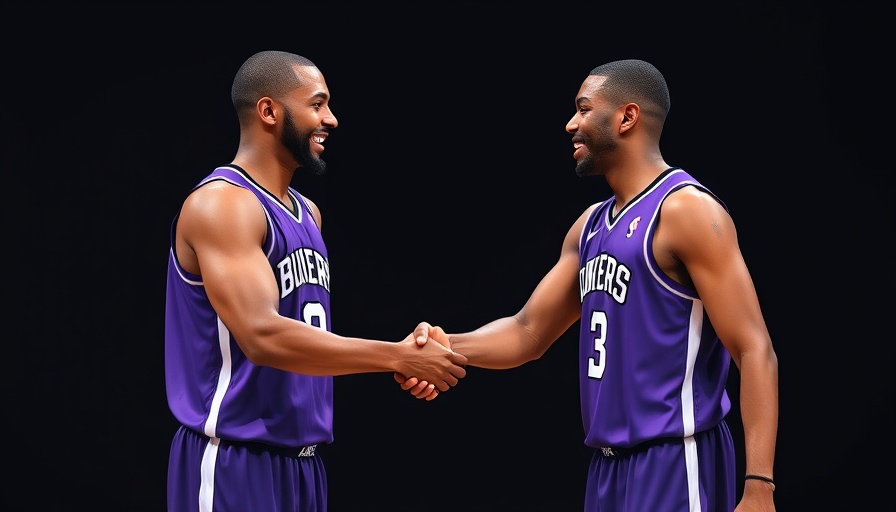
The Power of Emotional Intelligence in Sports
In today's fast-paced world, emotional intelligence (EQ) is just as crucial as physical skill, especially in high-stakes environments like professional sports. LeBron James's recent advice to Luka Doncic perfectly illustrates this point. As their new season began with Doncic joining the Lakers, James encouraged him to embrace his individuality—"Just hoop and be yourself"—highlighting a vital lesson for anyone seeking success in any field.
Learning from the Legends
James's advice stems from years of experience navigating complex team dynamics. After all, both he and Doncic have been in situations where adapting to new roles was essential. The shift from being a standout on one team to fitting into another is fraught with challenges. Yet, rather than mold Doncic into a different player, James urged him to maintain his unique approach. This perspective can be beneficial not only in basketball but also in business dealings where leadership requires both personal authenticity and unity within a team.
The Importance of "Fitting Out" vs. "Fitting In"
The transition from James's earlier philosophy of "fitting in" to his more recent encouragement of "fitting out" demonstrates a significant evolution in his understanding of teamwork. Ten years ago, James believed that being part of something special required an individual to sync with the group. However, as he explained, the best teams thrive when each member brings their fullest self, enhancing collective performance. This lesson in emotional intelligence is valuable for leaders who want to inspire their teams while fostering a culture of authenticity.
Applying Emotional Intelligence in Leadership
How can one cultivate emotional intelligence in their workplace or team setting? First, it starts by understanding individual team members’ strengths and encouraging them to leverage those strengths. For a manager or business owner, this means actively engaging with employees, asking for their input, and tailoring challenges to suit their skills. Studies show that effective EQ can lead to higher employee retention and satisfaction.
Insights from Other Leaders
Many successful leaders echo the importance of emotional intelligence in fostering high-performing teams. For instance, Satya Nadella, CEO of Microsoft, attributes part of his company’s turnaround to an emphasis on empathy and collaboration. By adopting a more emotionally intelligent approach, leaders can create an environment where innovation flourishes, driven by a diverse set of ideas and backgrounds.
Future Trends: The Growing Need for Emotional Intelligence
As businesses increasingly leverage technology, the value of human-centric leadership becomes even clearer. The future of work demands leaders who can navigate complex social dynamics, just like James and Doncic on the basketball court. Emotional intelligence is likely to become a key differentiator between successful and struggling organizations. An increased focus on EQ can enhance workplace culture, driving innovation and collaborative success.
Embrace Your Unique Value
In closing, the advice given by LeBron James encapsulates a broader message about embracing individuality while contributing to a team. Whether on the court or in the boardroom, the ability to stay true to oneself while working collaboratively with others can lead to powerful outcomes. As you consider your role, think about how you bring your unique experiences and perspectives to your team, and encourage those around you to do the same.
Take Action: Cultivating Emotional Intelligence
If you want to enhance your leadership skills, consider exploring tools and resources that delve deeper into emotional intelligence. There are numerous courses available that help develop this skill set, leading to increased effectiveness in both personal and professional spheres. Embrace the opportunity to improve your emotional intelligence and, in turn, positively impact those around you.
 Add Row
Add Row  Add
Add 




Write A Comment